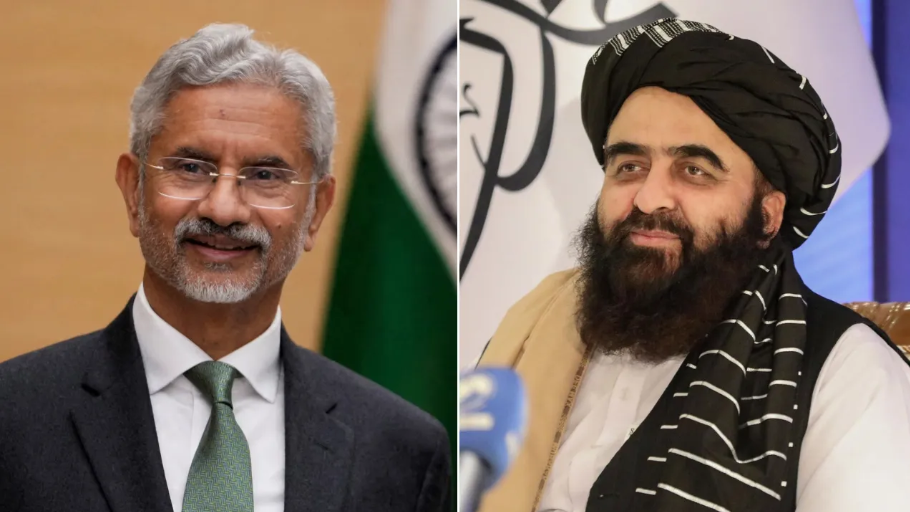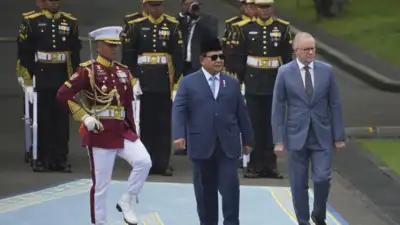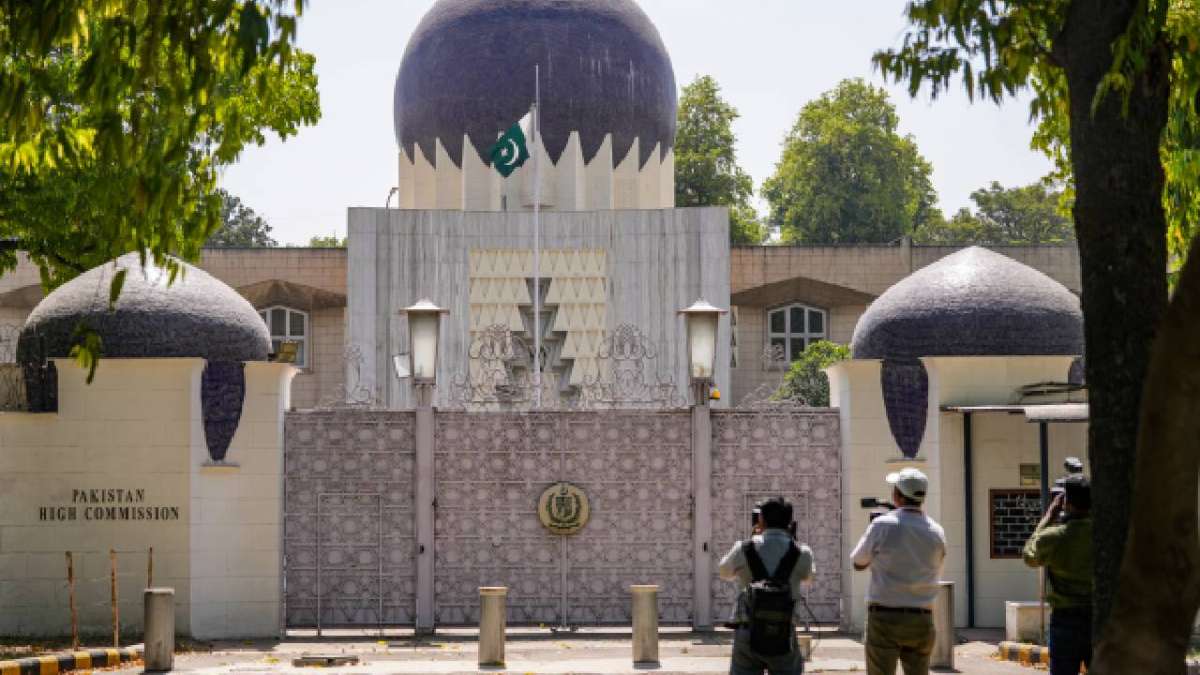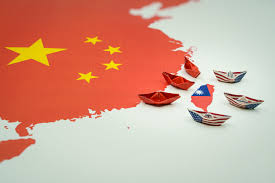Vladimir Putin and Xi Jinping hail Russia-China friendship on state visit

NEW DELHI: Vladimir Putin met Xi Jinping in Beijing on Thursday morning during a state visit aimed at underscoring the leaders’ close relationship and shoring up China’s support for Russia’s wartime economy.
The Chinese president welcomed his Russian counterpart, who arrived in Beijing before dawn, at the Great Hall of the People before they kicked off two days of meetings that are expected to cover the war in Ukraine, conflict in the Middle East and economic and defence co-operation.
In his opening comments, Putin hailed the countries’ economic ties and said Russia and China’s partnership was “one of the main stabilising factors on the international arena”. Xi stressed the “friendship” between Moscow and Beijing, saying he and Putin provided each other with “strategic guidance”, before the pair signed a statement on deepening their strategic partnership.
Putin is being accompanied by a high-powered delegation including new defence minister Andrei Belousov and his predecessor Sergei Shoigu, now secretary of the security council, for talks expected to focus heavily on Russia and China’s burgeoning defence co-operation. Russia’s economy has become increasingly dependent on trade with China in the face of western sanctions, which have escalated in the wake of Moscow’s full-scale invasion of Ukraine in 2022.
Analysts expect Putin to discuss how to work around these sanctions during the visit, which marks his 43rd meeting with Xi. Ahead of the visit, Putin sought to portray Russia and China as united in their goal of creating a “multipolar world”, praised a Ukraine peace plan by Xi that largely echoes the Kremlin’s talking points and hinted at a possible role for Beijing in brokering an eventual peace with Kyiv.
While Russia and China recorded a huge increase in trade following the outbreak of the Ukraine war — which Beijing has refused to condemn — there are signs that Beijing has pulled back slightly. China’s exports to its neighbour fell in March and April as the US threatened to target Chinese banks that it alleged were assisting in circumventing sanctions.
Russia’s delegation included a number of top economic officials, among them central bank governor Elvira Nabiullina, finance minister Anton Siluanov and Maxim Oreshkin, Putin’s top economic aide. In a sign of Beijing’s growing importance as a client for Moscow’s oil exports, the Russian team also included several senior figures from the energy industry, including deputy prime minister and former energy minister Alexander Novak and Igor Sechin, chief executive of state oil company Rosneft. But the conspicuous absence of Alexei Miller, chief executive of state gas export monopoly Gazprom, indicated there were still limits to China and Russia deepening their economic ties. Negotiations over Power of Siberia 2, a pipeline that Russia hopes will replace its lost gas exports to Europe, have been delayed amid disagreements between Moscow and Beijing on critical details.
Russia’s delegation also included top officials in charge of increasing defence production, including Denis Manturov, who was recently promoted to the role of first deputy prime minister overseeing the defence sector. Putin was sworn in for a fifth term as president last week, extending his quarter-century rule until at least 2030. The directors-general for Russian space co-operation and military technical co-operation will also participate in small-format talks with Chinese officials alongside Putin.
Expanded talks will focus on economic co-operation and feature five other deputy prime ministers, the heads of several state companies and a small number of oligarchs including Oleg Deripaska, according to the Kremlin. Putin and Xi will then go for a walk alone before meeting for more sensitive talks, the Kremlin said, alongside Belousov, Shoigu and Putin’s top two foreign policy officials.
The two sides on Thursday signed bilateral documents including an agreement to create a cross-border big cat reservation, a protocol on Jerusalem artichoke exports, a plan to jointly develop an island along the border on the Amur River and memoranda between state media groups. Recommended The Big Read China-Russia: an economic ‘friendship’ that could rattle the world On Friday, Putin will travel with Chinese leaders to lay a wreath for Soviet soldiers who fought in north-eastern China before attending a China-Russia Expo in Harbin in northern China, Caixin reported. Chinese leaders have said little officially about the visit.
Analysts said Beijing was focused on trying to stabilise tensions with its important trade partners in the EU and US, which have accused China of stoking overcapacity to boost weak economic growth and have opened anti-dumping investigations. US President Joe Biden on Tuesday announced tariffs on $18bn of Chinese goods, including electric vehicles, solar cells, semiconductors and other tech products, in his most significant action on trade with China as president. As the world’s largest exporter, China’s economy is heavily dependent on its ability to sell into developed markets, despite the strides it has made in diversifying in recent years into emerging markets.











